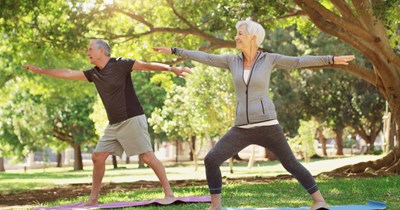It's particularly important for elderly patients to take care of themselves after they leave the emergency department. There are symptoms to monitor and risks you can manage that help avoid a return trip to the hospital:
- Medication side effects: If you are prescribed a new medication, be sure to ask your doctor about side effects. Your emergency physician may not have access to your most up-to-date list of medications. You’ll want to provide that information to your physician or pharmacist whenever possible so that they can help you navigate (and avoid) interactions that can occur with medications you are taking. After discharge, ask your pharmacist to review the new medications with you and check for interactions. You can also try an online drug interaction checker. Be sure to discuss any flagged medications with your doctor or pharmacist. Some medical conditions may require multiple medications that can have interactions. It is good to know and be aware.
- Bowel health: Constipation is a very common side effect of medications, in addition to being caused by diet changes or aging-related slowed intestinal movement. If you do not normally have constipation issues, and they suddenly arise, this can be a sign of simple to fix problems such as dehydration or a medication effect. Constipation can sometimes be a symptom of more severe problems such as obstruction of the urine or the bowels. Signs of concerning or dangerous causes of constipation include decreased urination or difficulty urinating, vomiting, fevers, or abdominal pain.
- Feeling weak: You may feel weak or be unsteady when recovering from the illness or injury that brought you to the emergency department. In fact, your risk of falling is increased after an emergency visit, and a third of older adults will have a fall at home in the months after the visit. Take extra care, use your walker or cane if prescribed one, and discuss with your primary care doctor or local fire department about a home inspection to see if there are fall risk hazards that can fixed. This can include simple things like installing grab bars in the shower and around the toilet and using night lights.
- Fracture prevention: If you were seen in the emergency department for a fall or a fracture, it is very important that you talk to your doctor about your risk for osteoporosis. Osteoporosis is also known as brittle bones or weakened bones. The risk increases as we age, with women over 50 years old and men over 70 years old at highest risk. Certain medications and medical problems can increase your risk of weakened bones, such as prednisone or steroids, anti-seizure medications, and kidney problems.
You should have your vitamin D and calcium levels checked yearly and take supplements if these are low. Additional medications to strengthen your bones may be needed. Exercise is a natural way to strengthen them. The last thing your doctors or you want is for you to fall again and break a hip, so it is very important to do everything you can to keep your bones strong.
 American College of Emergency Physicians
American College of Emergency Physicians







